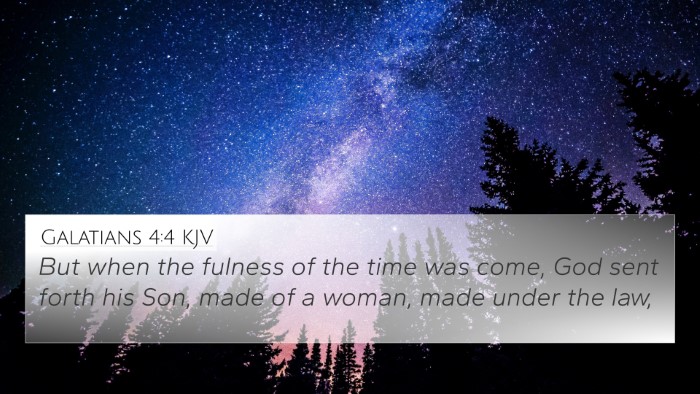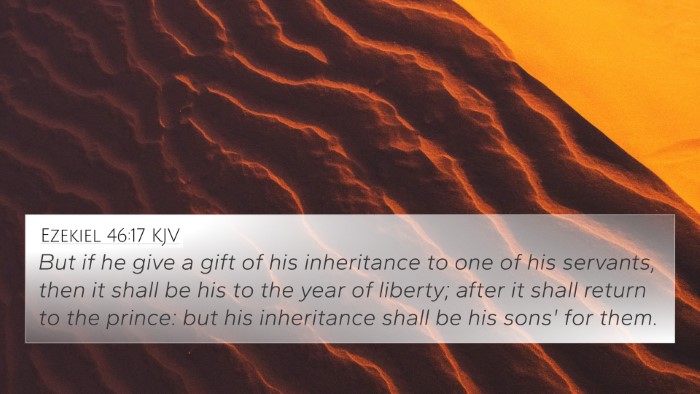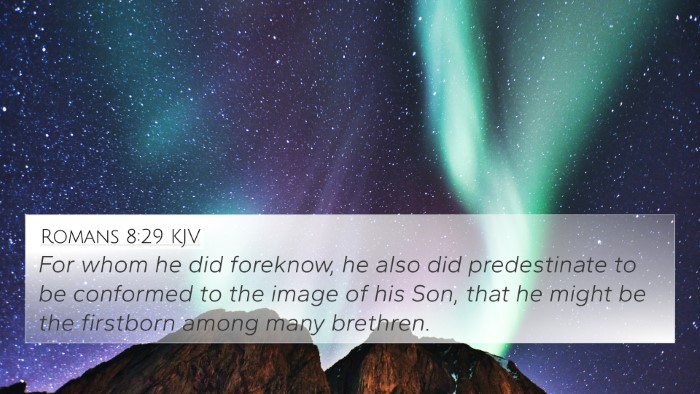Understanding John 8:35
Verse: John 8:35 - “And a slave does not abide in the house forever, but a son abides forever.”
This verse contrasts the temporary status of a slave with the permanent status of a son within a household. It conveys deeper theological meanings and implications regarding freedom, identity, and lasting acceptance in God's Kingdom.
Commentary Insights
In analyzing John 8:35, we can draw insights from various public domain commentaries:
- Matthew Henry:
Matthew Henry emphasizes the notion of permanence in God's family. He notes that while servants or slaves hold a conditional position, children are embraced with privilege and security, signifying a blissful relationship with the Father.
- Albert Barnes:
Albert Barnes points out that this verse illustrates the distinction between being part of God’s household through faith versus mere association without commitment. He discusses how understanding the nature of true belonging transforms one's relationship with God, offering eternal security.
- Adam Clarke:
Adam Clarke provides a detailed analysis of the Hebrew roots related to kinship and inheritance. He explains that a son, through birthright, possesses an everlasting claim to the household, making the comparison to Christ’s eternal role in relation to believers impactful.
Thematic Connections
This verse opens the door to thematic connections and cross-references throughout the Bible. Here are some noted relationships with other scriptures:
- Galatians 4:7: “Therefore you are no longer a slave, but a son; and if a son, then an heir of God through Christ.”
- Romans 8:15: “For you did not receive the spirit of bondage again to fear, but you received the Spirit of adoption by whom we cry out, ‘Abba, Father.’”
- Hebrews 3:6: “But Christ as a Son over His own house, whose house we are if we hold fast the confidence and the rejoicing of the hope firm to the end.”
- 1 John 3:1: “Behold what manner of love the Father has bestowed on us, that we should be called children of God!”
- John 1:12: “But as many as received Him, to them He gave the right to become children of God, to those who believe in His name.”
- Luke 15:21-22: The parable of the Prodigal Son emphasizes the father's acceptance and restoration of his son, contrasting the former state of servitude.
- Romans 8:17: “And if children, then heirs—heirs of God and joint heirs with Christ.”
Comparative Bible Verse Analysis
Exploring the cross-references enhances our understanding of John 8:35, showcasing the interconnectedness of scripture. The themes of freedom, belonging, and inheritance emerge as critical concepts:
- Temporary vs. Permanent: The contrast between a slave (temporary state) and a son (permanent state) reflects God's desire for believers to relish their identity as His children.
- Security in Sonship: Scriptures such as Galatians 4:7 support the security that comes from being a child of God compared to a mere servant's position.
- Spiritual Adoption: Romans 8:15 enhances our understanding of spiritual adoption, reinforcing the significance of being called a child of God.
- The Consequence of Belonging: John's portrayal of believers as children leads to deeper faith commitments and responsibilities.
Scriptural Cross-Referencing Practise
For those looking to delve deeper into scripture through cross-referencing methods, it is crucial to understand how to navigate biblical texts:
- Tools for Bible Cross-Referencing: Utilize Bible concordances to find related scriptures efficiently.
- Bible Cross-Reference Guides: Many study Bibles provide cross-reference features that can reveal connections and parallels amongst verses.
- Systematic Study: In approaching cross-referencing Bible study, thematic collections (e.g., sonship, freedom, inheritance) can yield a richer understanding of the doctrine presented in scripture.
Conclusion
John 8:35 stands as a profound testament to the believer's identity in Christ as a son rather than a slave. This distinction not only enhances the interpretation of the verse but also provides significant thematic ties across the Bible, illuminating the blessings of being part of God's family. Through the use of biblical cross-referencing techniques, believers can deepen their understanding of scripture and the cohesive message of salvation and belonging it delivers.
Further Exploration
As individuals seek to enrich their biblical literacy, engaging in comparative studies of related verses can illuminate the nuances of theological truths, fostering greater faith and understanding.














